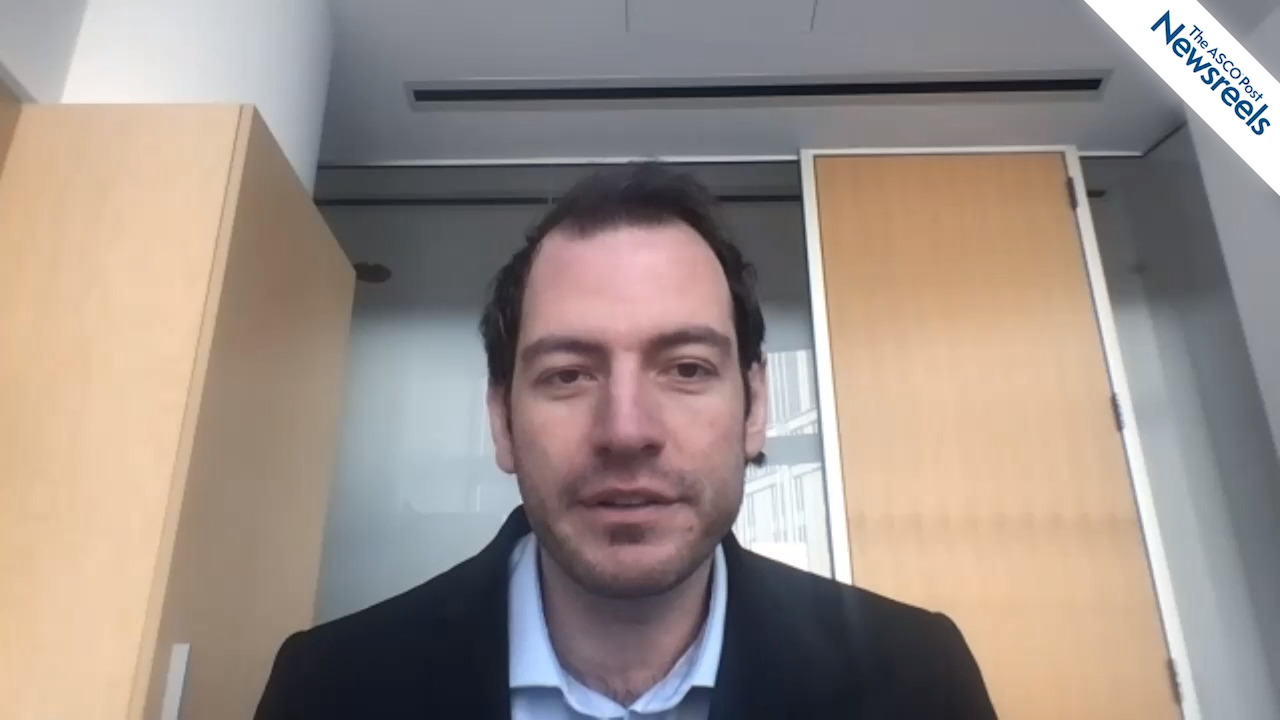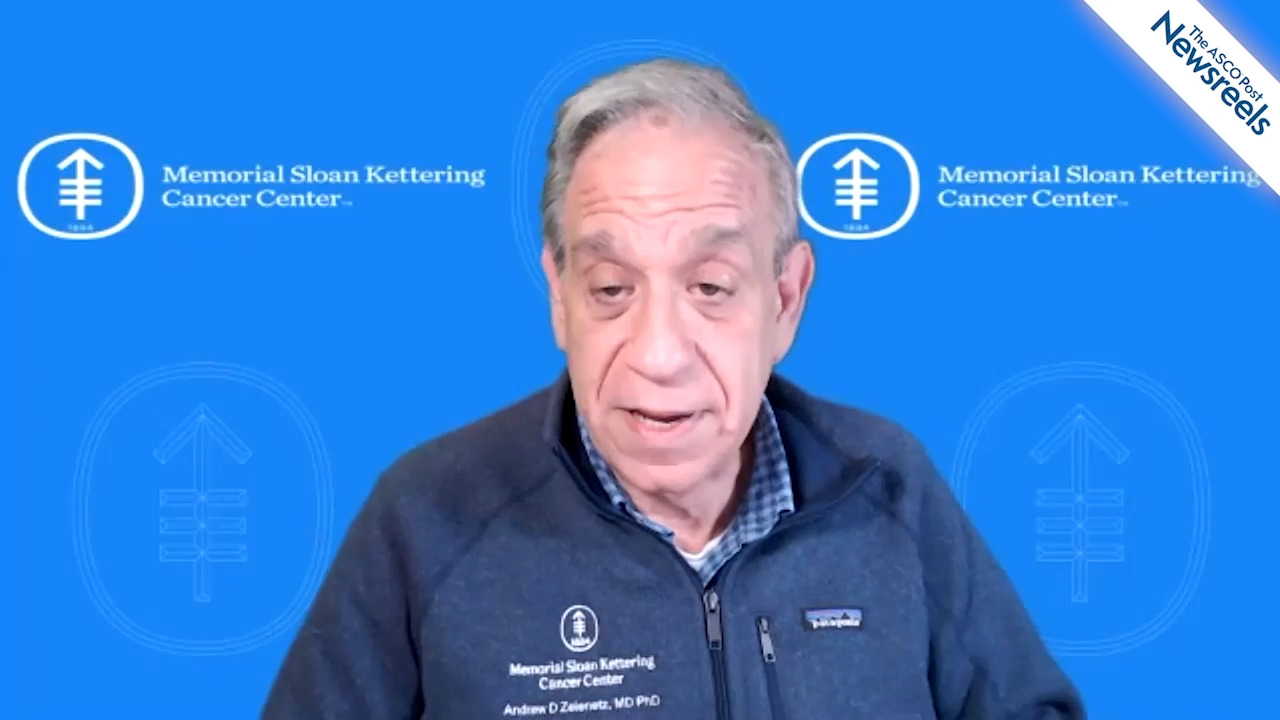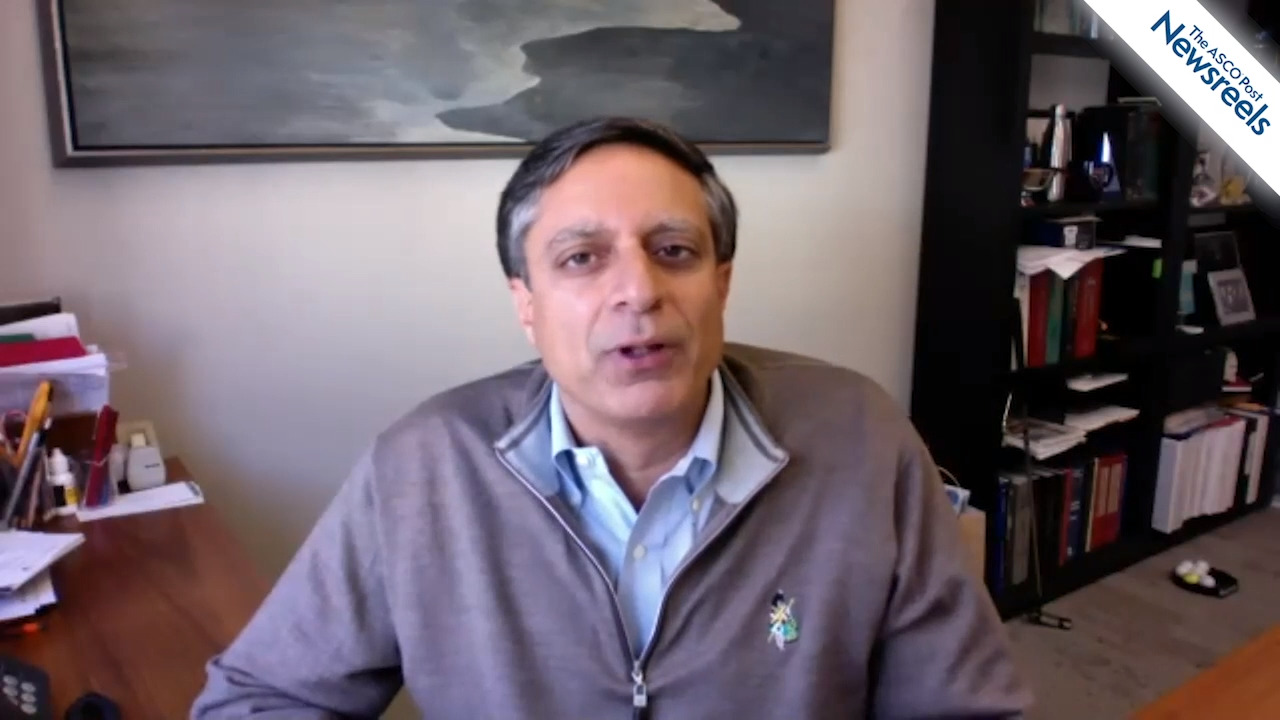Andrew D. Zelenetz, MD, PhD, on Mantle Cell Lymphoma: Immunochemotherapy Plus Lenalidomide
2020 ASH Annual Meeting & Exposition
Andrew D. Zelenetz, MD, PhD, of Memorial Sloan Kettering Cancer Center, discusses phase II results from a single-center study that explored a novel approach for high-risk patients with mantle cell lymphoma. Among patients with TP53 wild-type disease, the data suggested this treatment was effective (Abstract 119).
The ASCO Post Staff
Christian Marinaccio, PhD Candidate, of Northwestern University, describes research he is conducting in the laboratory of John D. Crispino, PhD, which shows the loss of the tumor suppressor gene LKB1/STK11 facilitates progression of myeloproliferative neoplasms to acute myeloid leukemia (Abstract 1).
The ASCO Post Staff
Corey Cutler, MD, MPH, of Dana-Farber Cancer Institute, discusses results from a multicenter trial that compared reduced-intensity allogeneic hematopoietic cell transplantation to hypomethylating therapy or best supportive care in patients aged 50 to 75 with advanced myelodysplastic syndromes (Abstract 75).
The ASCO Post Staff
Andrew D. Zelenetz, MD, PhD, of Memorial Sloan Kettering Cancer Center, offers his expert views on five treatment studies in mantle cell lymphoma focusing on the next-generation BTK inhibitor LOXO-305; lisocabtagene maraleucel; minimal residual disease monitoring following autologous stem cell transplantation with or without rituximab maintenance; the antibody-drug conjugate VLS-101; and venetoclax, lenalidomide, and rituximab (Abstracts 117, 118, 120, 121, 122).
The ASCO Post Staff
David T. Teachey, MD, of the University of Pennsylvania and Children’s Hospital of Philadelphia, discusses data showing that cranial radiation might be eliminated in most children with T-cell acute lymphoblastic leukemia and that bortezomib may improve survival in children with T-cell lymphoblastic lymphoma (Abstract 266).
The ASCO Post Staff
Sagar Lonial, MD, of the Emory University School of Medicine, summarizes key papers presented in a session he co-moderated on how second-generation CAR T cells can be used to treat patients with multiple myeloma (Session 653).





